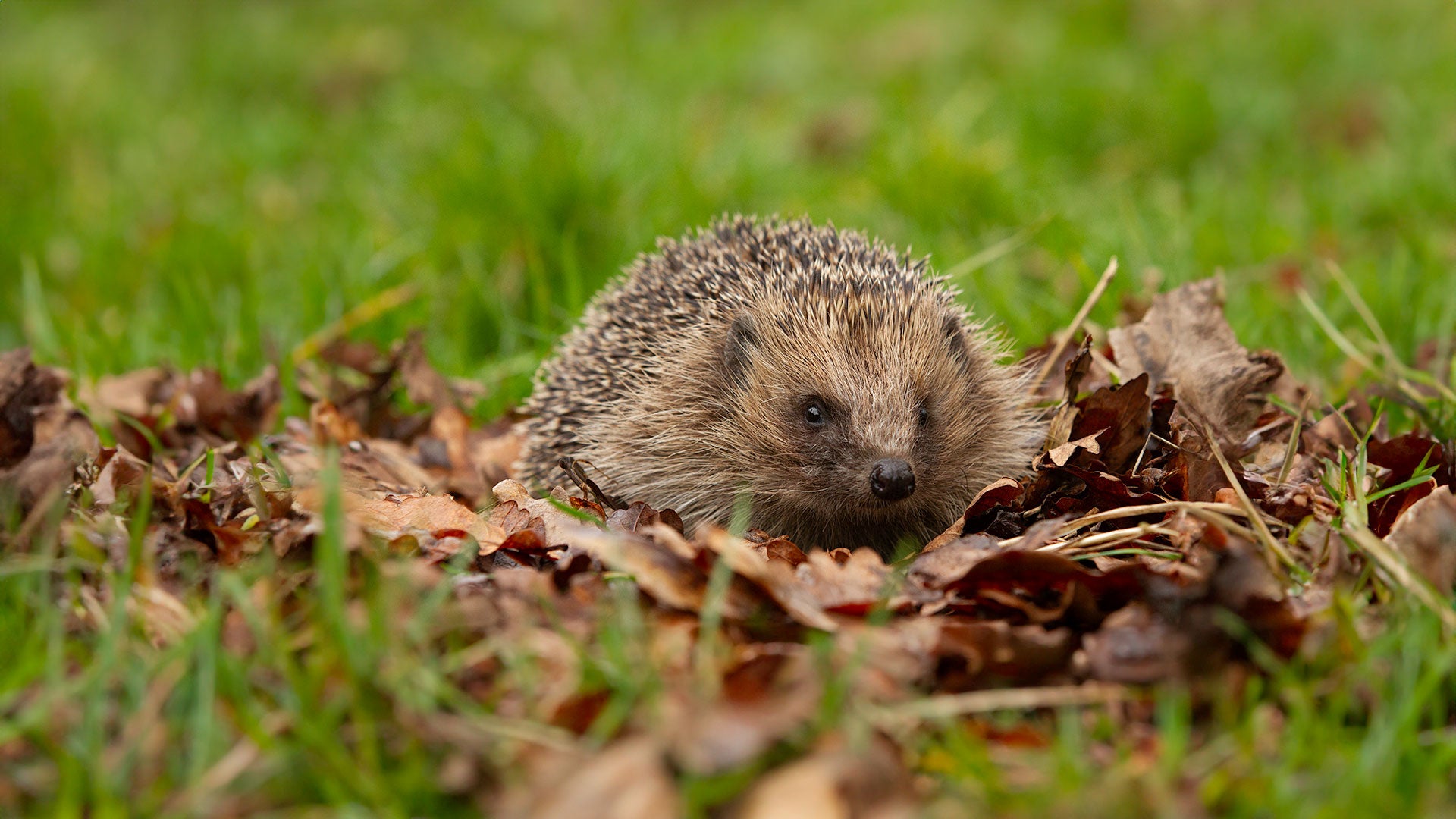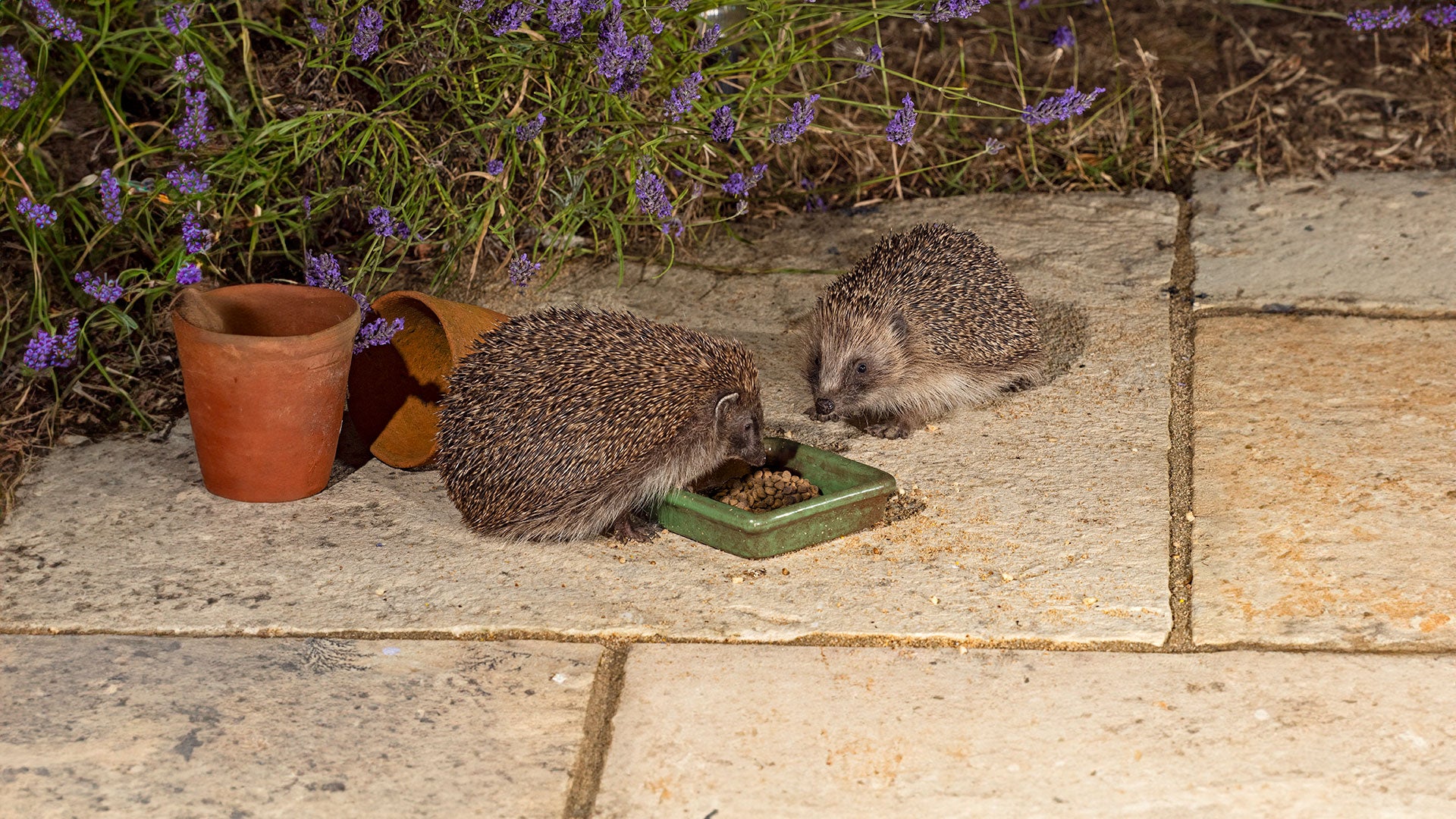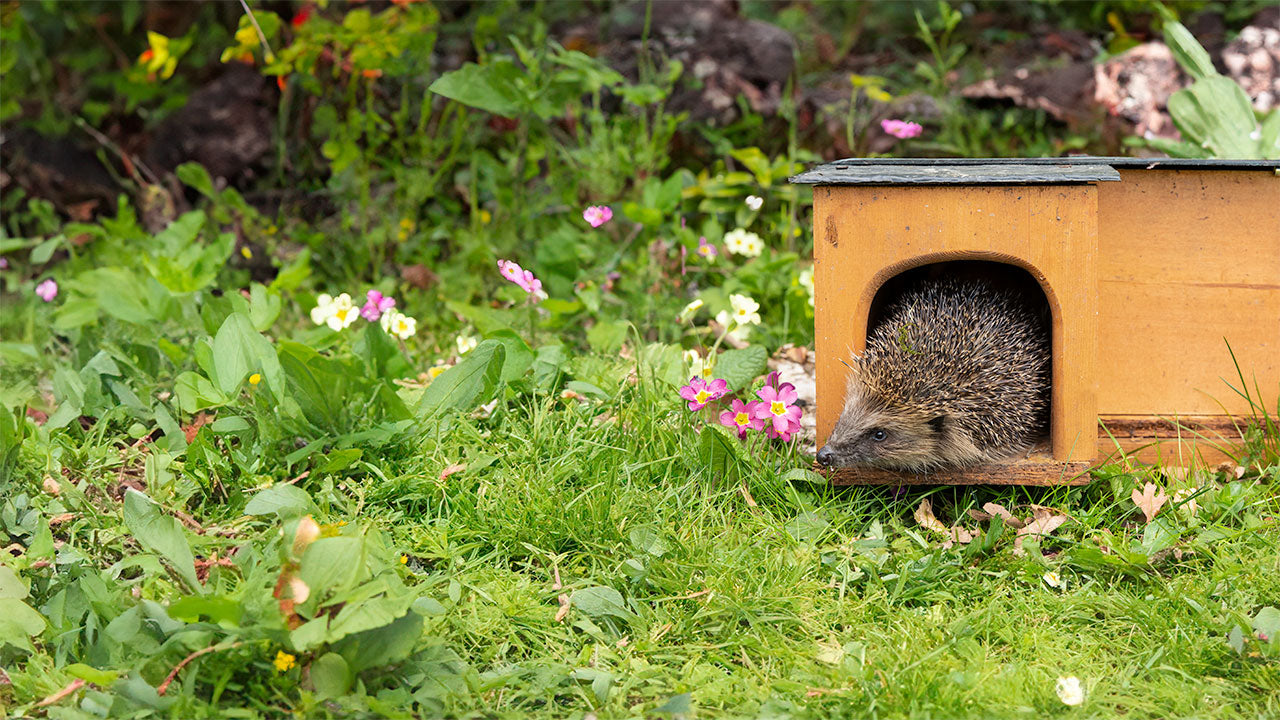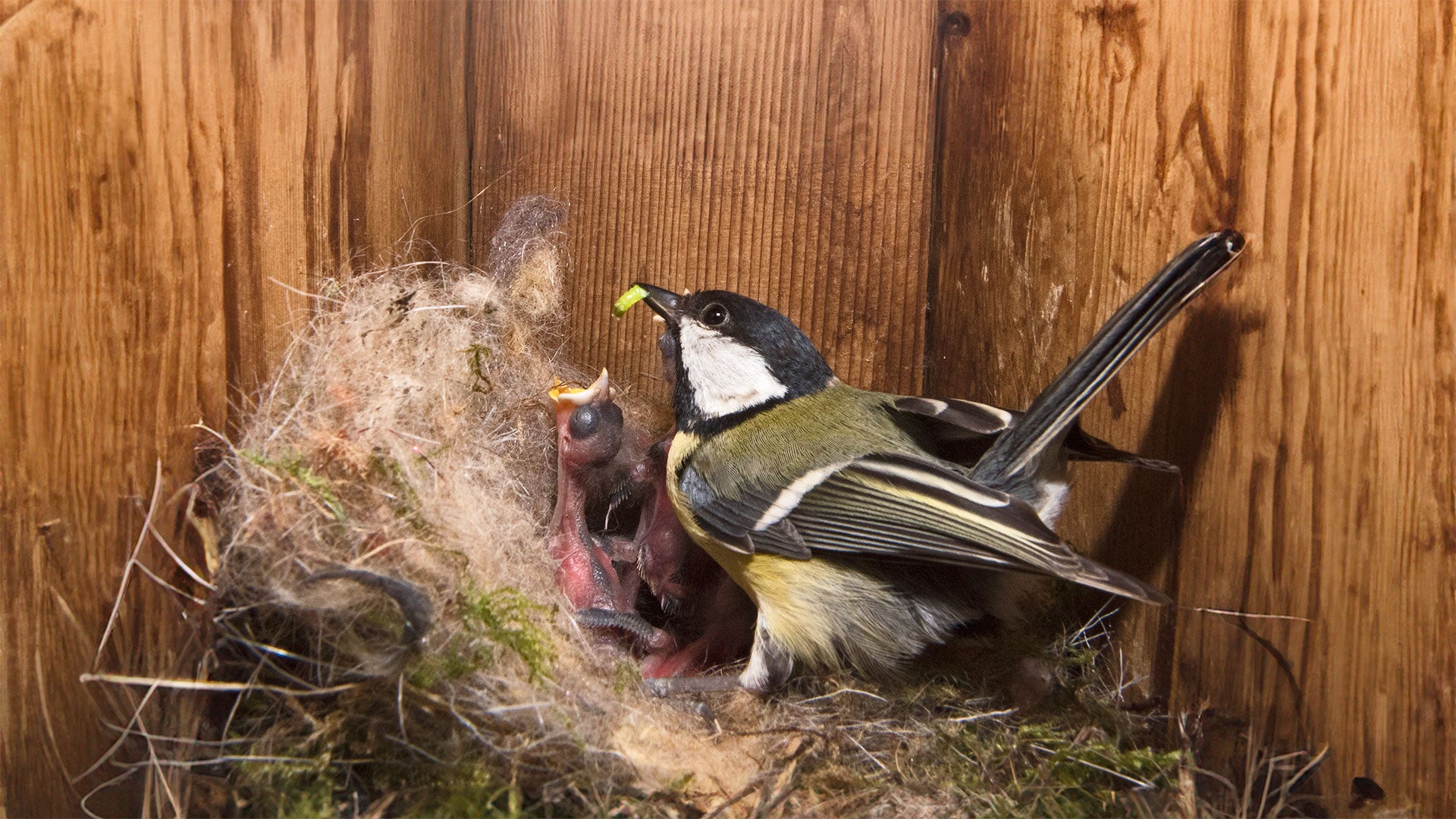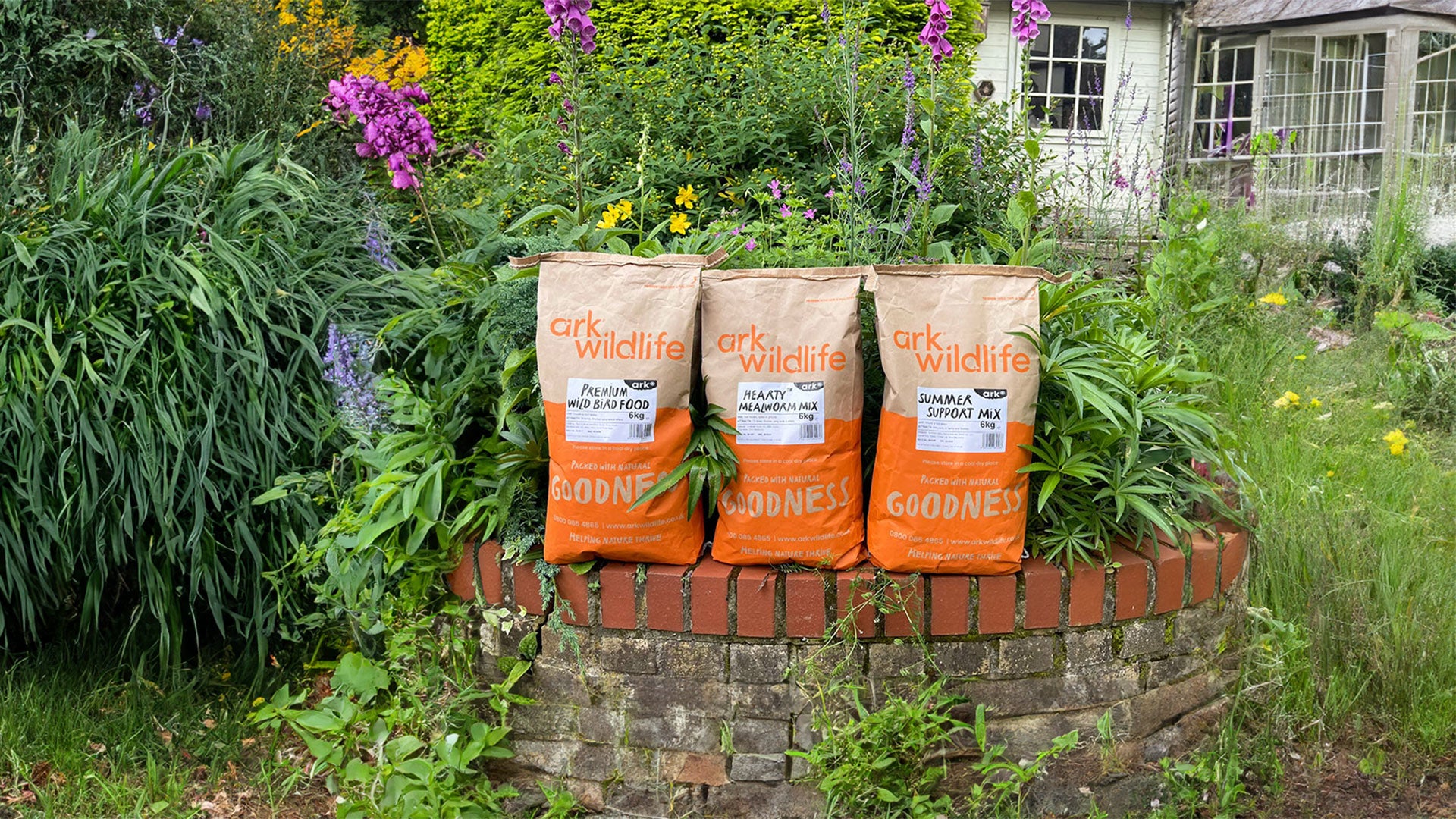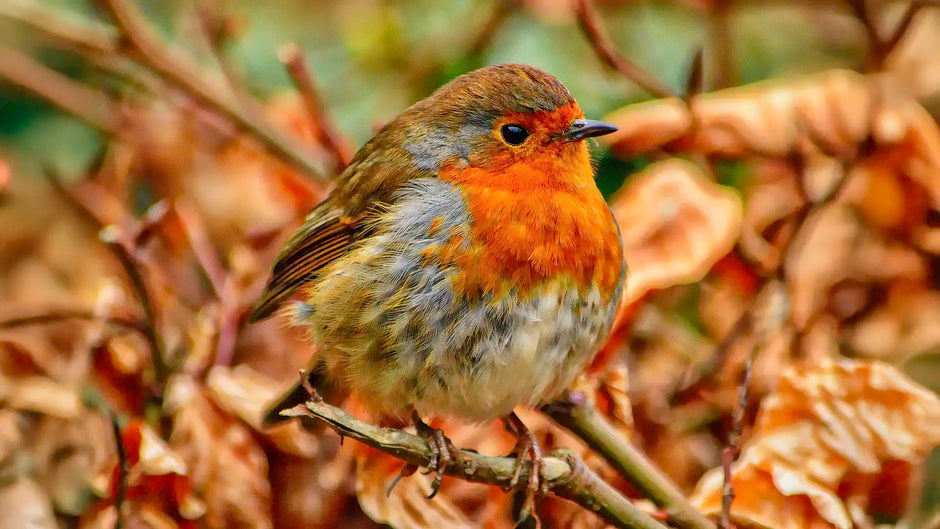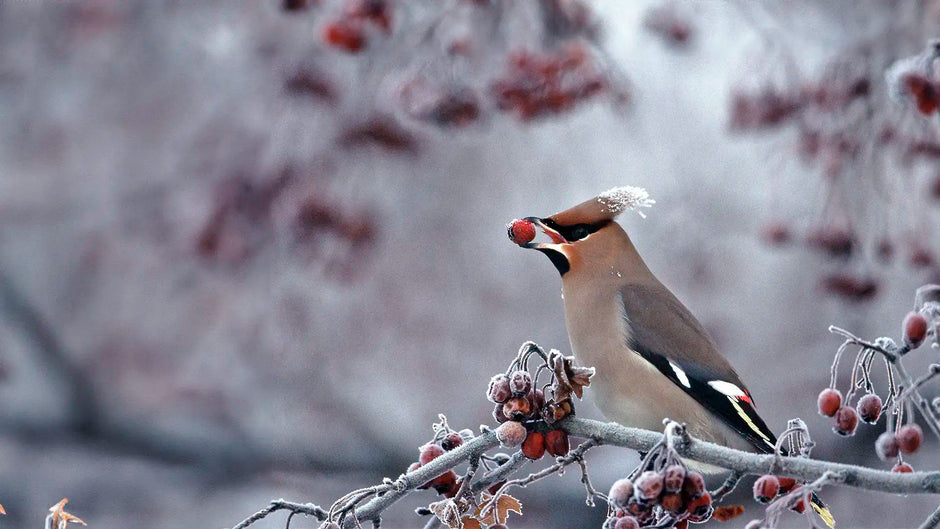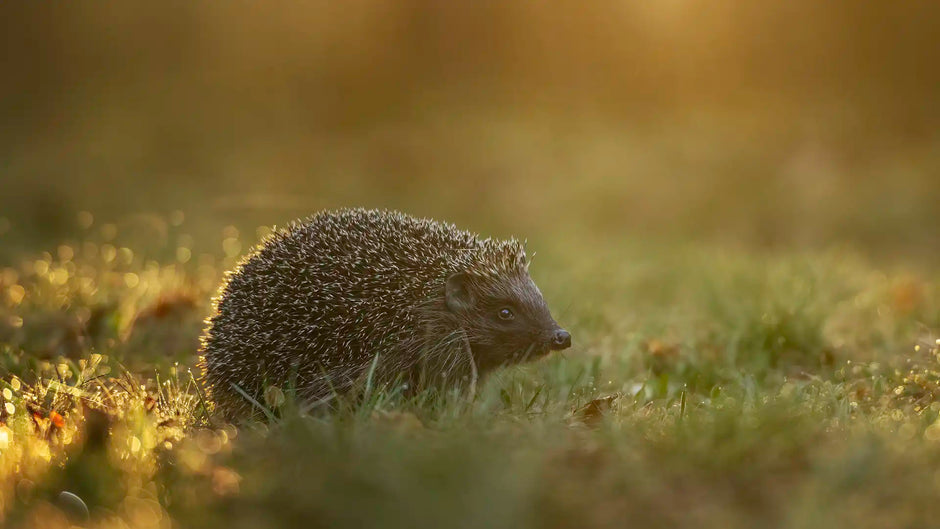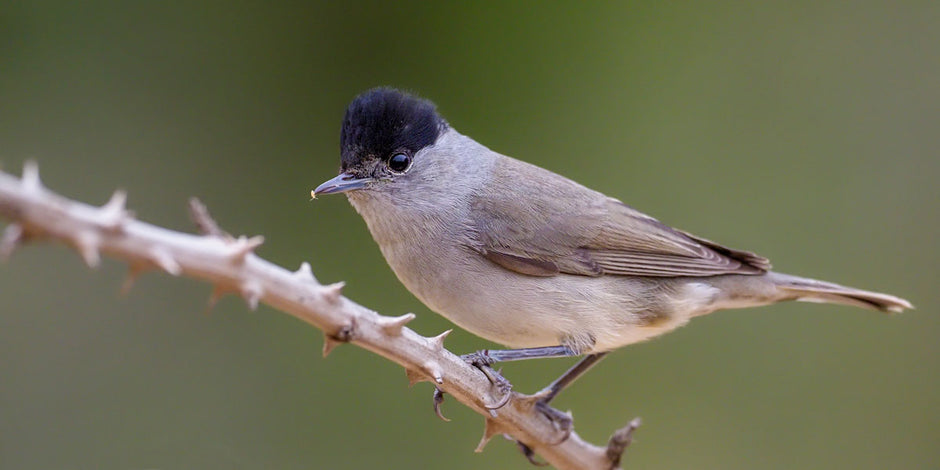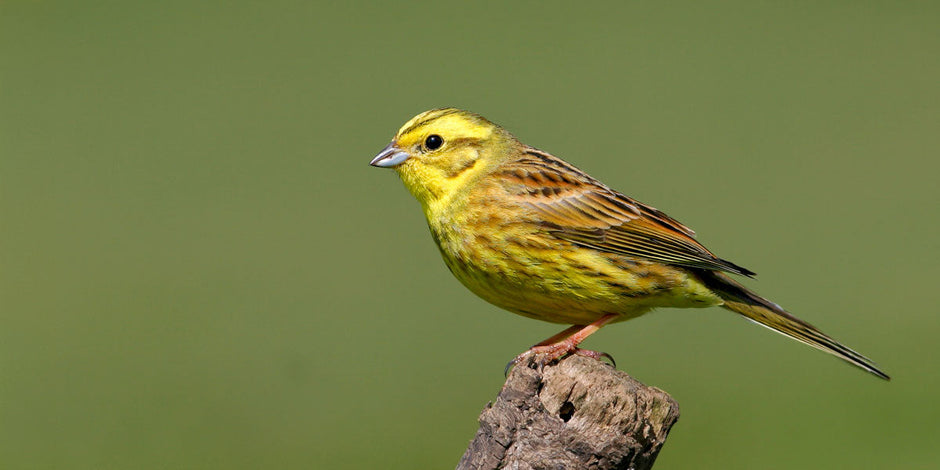Feeding hedgehogs in your garden is one of the simplest ways to support these much-loved visitors. Their natural diet is diverse, but modern gardens and farmland don’t always provide enough of what they need. By offering safe, nutritious food and fresh water, you can make a real difference to their survival. Below, we’ve answered the most common questions about feeding hedgehogs, what’s safe, what’s best avoided, and how to keep your garden a welcoming place.
The UK’s #1 Bird, Hedgehog & Wildlife Food Shop
Ark Wildlife helping hedgehogs thrive for over 30-years - from nutritious hedgehog food to safe houses and feeding stations.
Rated 5-⭐⭐⭐⭐⭐ by Customers, with FREE Express Delivery and 60-Day Product Guarantee.
Why Feed Hedgehogs?
In the wild, hedgehogs spend their nights foraging for beetles, worms, caterpillars, slugs, and other invertebrates. This varied diet gives them the protein, fats, and minerals they need for energy, growth, and strong bones. But modern life has made foraging harder. Tidy lawns, paved gardens, and the spread of our concrete jungles mean fewer insects and fewer safe places to hunt.
That’s where we come in. By offering the right foods in our gardens, we can help fill the gap and give hedgehogs the nutrition they naturally seek. A good hedgehog food mirrors their insect diet — high in protein, balanced in calcium and phosphorous, and easy for them to digest. Think of it as lending a hand when their natural diet falls short, without replacing their natural instincts.

Where should I feed hedgehogs in the garden?
Place food in a quiet, sheltered spot, ideally in a covered feeding station.
While it’s tempting to leave food on the patio where you can watch your visitors, hedgehogs are shy by nature. A covered feeding station not only protects food from cats, foxes, and the weather, but also gives hedgehogs the safety they need to feed calmly. Position food in different corners of the garden rather than the same spot every night, this encourages natural foraging behaviour and avoids over-dependence. By mixing visible feeding areas with tucked-away stations, you’ll enjoy sightings while still supporting their instinct to search and explore.
When should I feed hedgehogs?
At dusk, when they naturally forage.
Hedgehogs are nocturnal, so evening feeding matches their rhythm. It also helps food get eaten quickly before pests can access it. If you see a hedgehog in daylight, it isn’t always a sign of distress: mothers sometimes need a break from hoglets, youngsters may be thirsty, or a hedgehog might simply be hungry. But if it appears wobbly, inactive, or thin, it may need help from a rescue centre.

How much food should I leave out?
Around 50–100g (a handful) per hedgehog per night.
This amount is usually enough for one hog per night. Adjust if food is left or cleared too quickly. In autumn, hedgehogs preparing for hibernation may eat more, while in spring, recently woken hogs need high-protein meals to regain lost weight. Feeding stations help protect food from other animals and keep portions consistent.
Can you feed hedgehogs cat biscuits or dog food?
Yes, you can feed hedgehogs cat or dog food, but it's important to choose the right type and use it appropriately.
Wet or dry cat food, especially poultry-based varieties, can serve as a suitable supplement to a hedgehog's diet. These foods are nutritionally balanced for obligate carnivores which reasonably reflect the diet hedgehogs would naturally consume in the wild. A frequently preferred option is kitten kibble, used due to its small size and palatability, but it’s worth noting it typically has a higher protein and low fibre content, which can lead to weight gain if fed in excess. Therefore, while cat and dog food can be part of a hedgehog's diet, it should not be the sole food source. A specialist hedgehog food formulated with the appropriate balance of nutrients is the gold standard for their health.
Can hedgehogs eat dry dog food?
Yes, this can be very good for them but only if the biscuit (kibble) is small enough!
Dogs are omnivorous carnivores, whereas cats are pure carnivores. Dog food tends to have more ingredients than cat food, along with higher fibre and lower levels of protein, vitamins, and minerals. As such, dog food may be preferable to cat food when feeding hedgehogs (omnivorous insectivores) due to the closer digestive anatomy of the two species.
Can hedgehogs eat mealworms?
Yes, they are not toxic - but they come with strong warnings.
Hedgehogs love mealworms, but they’re addictive and nutritionally unbalanced. Their high phosphorous and low calcium ratio leads to bone weakening (metabolic bone disease) if fed regularly. Many hedgehogs will gorge on mealworms and ignore healthier foods, causing rapid health decline. If you do offer them, it should be sparingly and mixed with other foods, though most experts including us, recommend avoiding them altogether. A balanced hedgehog food or insect mix (like dried soldier fly larvae) is far safer.
Can hedgehogs eat calcium worms (and are they the same as mealworms)?
Yes, calcium worms (black soldier fly larvae) are a much better option than mealworms, which should generally be avoided. The two look similar but come from completely different species, with very different effects on hedgehog health.
Calcium worms are the larvae of black soldier flies (Hermetia illucens), which feed on rotting fruit, vegetables, and meat. Mealworms are the larvae of darkling beetles (Tenebrio molitor), which mainly feed on cereal grains and plant matter. These distinct species have different metabolisms and unique diets, creating important nutritional differences: calcium worms contain a naturally higher calcium-to-phosphorous ratio (crucial for bone strength), plus lauric acid, a fatty acid that supports the immune system. Mealworms, meanwhile, are higher in crude protein and amino acid variety, but have a dangerously low calcium-to-phosphorous ratio. Especially in context to their addictive appeal to hedgehogs, which has the potential to lead to metabolic bone disease if eaten to excess.
For these reasons, calcium worms can be offered as part of a varied diet, while mealworms are best avoided altogether. A handful of calcium worms occasionally adds variety, without risk.
The UK’s #1 Bird, Hedgehog & Wildlife Food Shop
Ark Wildlife helping hedgehogs thrive for over 30-years - from nutritious hedgehog food to safe houses and feeding stations.
Rated 5-⭐⭐⭐⭐⭐ by Customers, with FREE Express Delivery and 60-Day Product Guarantee.
Do hedgehogs eat meat and chicken?
Yes, but only in the right form.
Hedgehogs are primarily insectivores, but they can digest meat proteins. In the wild this comes from beetles, worms, slugs, and other invertebrates, not from cooked joints of meat. In gardens, safe sources of meat include quality cat or dog food made with chicken, turkey, or beef, or a balanced hedgehog food. Plain cooked chicken (unseasoned, no bones, no skin) can be offered in small amounts, but avoid salty, spicy, or processed meats, which can be harmful. Think of meat as a useful protein base, but not a replacement for a specialist hedgehog diet.
Can hedgehogs eat peanuts?
Yes, peanuts are not poisonous, but they shouldn’t form the main diet.
Peanuts provide energy and some beneficial fats, so they can be included as part of a varied diet, especially for free-roaming or foraging hedgehogs. However, they lack sufficient protein, calcium, and other essential nutrients for healthy growth and bone development. Whole peanuts can also pose a choking risk, particularly for young hedgehogs. Experts at Vale Wildlife Hospital advise using peanuts sparingly, ideally chopped and mixed with a balanced hedgehog food or other protein-rich offerings, so they act as a tasty supplement rather than a staple.
Can hedgehogs eat sunflower seeds?
Yes, safe in moderation, but best offered alongside protein-rich foods.
Sunflower hearts, (sunflower seeds with the shell removed), contain fats and some nutrients, and split bird seed mixes are generally fine for hedgehogs. They can complement a varied feeding routine that encourages natural foraging behaviour. However, sunflower hearts alone don’t provide the protein, calcium, and minerals hedgehogs need to maintain muscle and bone health. As Vale Wildlife Hospital notes, a diet relying solely on sunflower hearts can leave hedgehogs undernourished even if they appear plump. Offering them occasionally alongside a specialist hedgehog food ensures variety, nutrition, and safety.
Do hedgehogs eat spilt bird food?
Yes, hedgehogs may be attracted by, and eat spilt bird food.
Hedgehogs are often first seen in the garden eating spilt bird food under feeders. They will be eating the seeds, as well as all the insects and invertebrates that gather there. Small quantities of seeds and nuts are not harmful to hedgehogs, but can cause issues if eaten to excess. See our article on hedgehog metabolic bone disease for more information.
Can hedgehogs eat suet pellets and fat balls?
Yes, fat and suet products are non hazardous in small amounts, but they’re far from ideal.
Suet pellets and fat balls are designed for birds, not mammals. They’re very high in fat and energy, which may give a hedgehog a quick boost but can easily lead to weight gain if offered regularly. Hard fat balls also carry a choking risk if dry, especially for young hoglets. If a hedgehog picks at suet or fat balls under a feeder, it’s not dangerous in small amounts, but they should never form part of a deliberate feeding routine.
Can hedgehogs eat fruit?
Yes, but only occasionally in small amounts.
Hedgehogs are insectivores; therefore fruit is not part of their diet. Soft fruits like berries, or rotting apples may be nibbled but its more likely they’re interested in the insects that are also attracted to the fruit.
Can hedgehogs eat vegetables (including carrots)?
No, vegetables are not needed.
Hedgehogs do not normally eat vegetables. Carrots and other veg offer little nutrition due to the hedgehog’s metabolism and digestive tract, and are best avoided. Any incidental ingestion while hunting invertebrates is fine, but veg should not be provided intentionally. Stick to meat and insect-based foods as the main diet.
Can I feed hedgehogs bread and milk?
No, both can harm hedgehogs.
Bread is filling but nutritionally empty, while milk causes diarrhoea and dehydration (hedgehogs are lactose intolerant). Both have been traditional offerings in gardens for decades, but they do far more harm than good. Always offer fresh water in a shallow dish, this is essential and especially valuable during warm spells or after hibernation.

Can hedgehogs drink milk?
No, it will make them unwell.
Hedgehogs should not drink milk or any other dairy product such as cheese or yogurt. Hedgehogs are lactose intolerant and their digestive system cannot handle dairy or lactose. Although it is not poisonous, the lactose in the milk causes digestive upset, diarrhoea and will strip them of nutrition making them feel poorly. Leave out a shallow dish of clean tap water instead.
Can hedgehogs eat tuna fish?
Yes, but they’re unlikely to eat an actual fish due to the odour.
This question generally relates to fish-based cat food. Fish protein is beneficial, and therefore, within a balanced diet, cat or dog food is fine for hedgehogs. Hedgehogs have an excellent sense of smell and may be put off by (or attracted to) strong odours, and fish, of course, has a strong odour. Consumption of a lot of fish protein can also travel through a hedgehog’s digestive tract very quickly, resulting in fishy-smelling hedgehog poo. This was once thought to be proof hedgehogs couldn’t digest fish, but this has long since been shown to be untrue.
Do hedgehogs need extra vitamins or supplements?
Not if they’re given balanced food.
Good hedgehog foods contain the correct mineral balance, especially calcium and phosphorous, which work together for bone health. Too much of one without the other can cause problems. In the wild, a varied insect diet naturally provides balance, but in the garden, specialist food ensures hedgehogs get everything they need without the risks of imbalance from treats like mealworms or nuts.
How can I stop rats eating hedgehog food?
Use a feeding station and tidy up leftovers.
Rats are opportunistic and will investigate any food source. A simple box with a hedgehog-sized entrance excludes larger pests, while food placed at dusk and cleared in the morning reduces temptation. You can also grow mint or use peppermint spray near feeding sites, rats dislike the smell, but hedgehogs won’t mind.

What is the best food to buy for hedgehogs?
Specialist hedgehog food is the best choice.
Designed to replicate their natural insect-based diet, wildlife foods balance protein, fat, calcium, and phosphorous. This prevents bone disease and supports healthy weight gain. At Ark Wildlife, we supply a wide range of hedgehog foods, from crunchy dry biscuits to softer insect blends, so you can offer the best nutrition in your garden. Pair this with a hedgehog house and a simple feeding station, and you’ll be creating a year-round haven.
What can hedgehogs NOT eat?
The following should never be offered. Some are simply unhealthy, while others are positively harmful if eaten. If you have hedgehogs in your garden, keep these items well out of reach!
- Bread – fills them up without nutrients, can cause digestive issues.
- Milk or dairy – hedgehogs are lactose intolerant; milk causes diarrhoea.
- Cheese – also dairy, high in salt and fat, difficult to digest.
- Salty, spicy, or seasoned food – hedgehogs’ kidneys cannot cope with added salt.
- Processed meats – sausages, ham, bacon, or anything cured or smoked.
- Sugary foods – biscuits, cake, chocolate, or sweets.
- Raw fish – can carry parasites and is often rejected due to smell.
- Dried fruit – sticky, high in sugar, risks tooth damage and stomach upset.
- Onions, garlic, or strong herbs – toxic and harmful to digestion.
- Cooked Bones – they can splinter and cut, or cause choking.
- Fat balls (dry) – choking hazard and far too fatty if eaten often.
- Whole nuts – risk of choking or getting trapped in teeth.
Stick with specialist hedgehog food, or a little plain meaty cat/dog food and your hedgehogs will thank you.
Quick Tips for Feeding Hedgehogs
- Offer specialist hedgehog food or meat-based cat food.
- Provide a shallow dish of water year-round.
- Avoid bread, milk, and excess mealworms.
- Feed at dusk and remove leftovers by morning.
- Combine food with shelter and safe garden access for best results.
Final Thoughts
Feeding hedgehogs isn’t complicated, but it does make a huge difference. By sticking to safe, nutritious foods and avoiding the harmful myths of bread, milk, and swapping mealworms for calcium worms, you’re giving hedgehogs exactly what they need to thrive in modern gardens.
Pairing food and water with shelter, wild corners, and safe access routes creates a complete haven where hedgehogs can rest, feed, and raise their young. And every time you put out a bowl at dusk, you’re part of a wider network of wildlife-friendly gardens keeping hedgehogs alive in Britain.
By following the guidance and tips on this page, you can go forward confident that you’re helping your spiky friends and will be able to continue enjoying the magic of their night-time visits for years to come.
– Ark Wildlife continue to research hedgehog wellbeing and dietary health and are currently carrying out trials on new ways of providing highly palatable balanced nutrition with improved digestibility -
We are pleased to offer you a copy of Vale Wildlife Hospital’s advice sheets for feeding hedgehogs in your garden. They are one of the UK’s largest wildlife hospitals and hedgehog rescue centres. We therefore follow their guidance regarding hedgehog care as appropriate.

